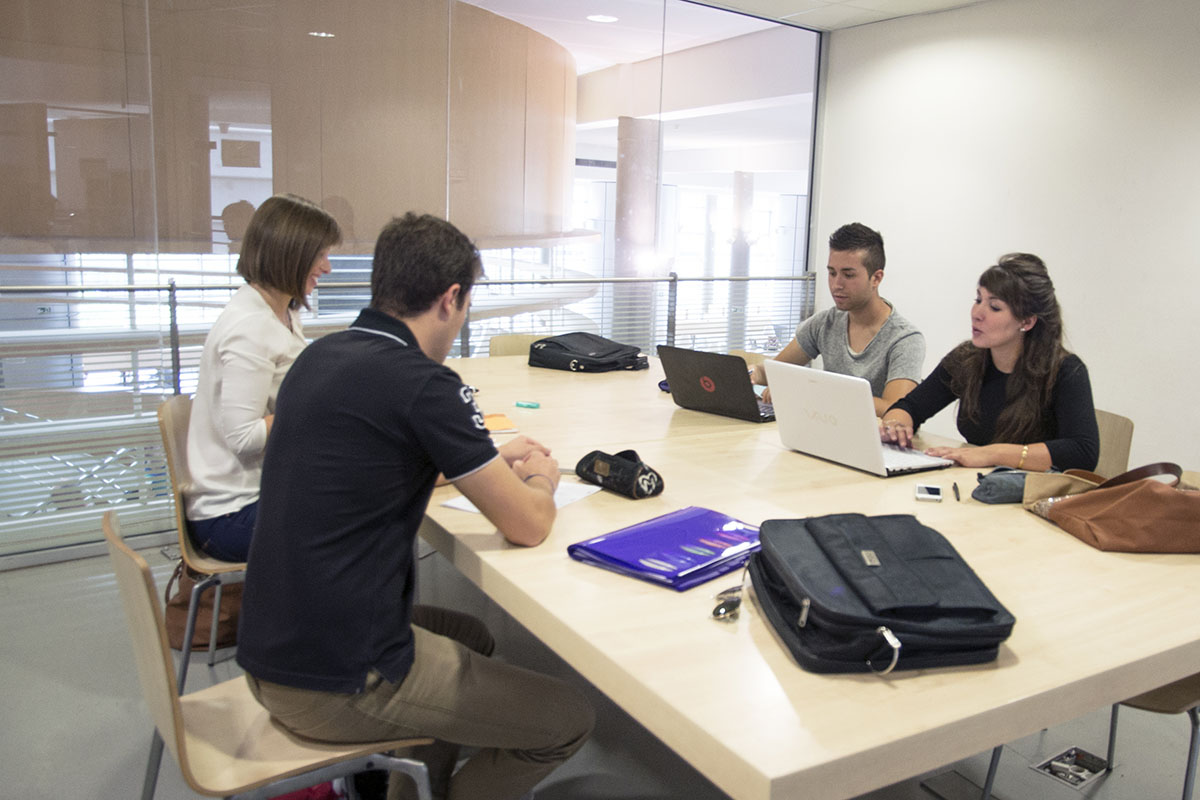And the CHARM alliance becomes master...
It will be innovative, transdisciplinary and resolutely focused on major environmental and societal challenges. This master's degree, the only one of its kind in Europe, is the fruit of collaboration between UM and its four partners in the CHARM-EU alliance, and will be launched at the start of the 2021 academic year. A small educational revolution presented by Gilles Subra and Patricia Cucchi from the University of Montpellier.
Imagine a master's degree bringing together students from all over the world, from disciplines as diverse as law, biology, human and social sciences, sport and management. Imagine this master's degree being co-piloted by several major European universities, and all these young minds pooling their skills to work on themes as concrete as world hunger or water management. Is it a dream? No, but "a very ambitious, unique and completely new project", emphasizes Gilles Subra, Professor Chemistry at the University of Montpellier and project manager for the CHARM-EU alliance.
Meeting the challenges of today and tomorrow
This master's degree, which will be launched in Montpellier at the start of the 2021 academic year, is not the result of a magic wand, but rather the outcome of a long-term project that began over a year ago within the CHARM-EU alliance, which brings together Trinity College Dublin and the universities of Barcelona,Utrecht,Eotvos Lorand in Budapest and, of course, Montpellier. Five major European institutions have chosen to join forces to tackle the environmental and social challenges facing our societies with a single hand.
Three major themes, in line with the Sustainable Development Goals (SDGs) set by the United Nations, emerged from this first phase of collective work: water management (SDG 6), global health, combining human health (SDG 3) and environmental health (SDGs 14 and 15), and food (SDGs 2 and 12). We don't want to compete with existing Masters programs," explains Gilles Subra. We won't be training economists or hydrologists, but new trans-disciplinary profiles destined for European careers and cross-disciplinary project managers.
Training European profiles
A total of around one hundred students will be recruited by the five universities, twenty at each site. They will benefit from innovative teaching based on active pedagogy. "It can be summed up in two words: "challenge based". Our aim is to ensure that students acquire the skills they need to meet the challenges associated with the major themes on offer," explains Patricia Cucchi, professor of organismal biology at the University of Montpellier and member of the CHARM-EU working group on teaching and learning strategies.
Students will therefore be called upon to take up challenges from civil society, the business world or research, always with scientific approach and rigor as the cornerstone. " They can come up with their own project or choose to develop one, individually or collectively, but always in close interaction with laboratories, companies or associations," adds Patricia Cucchi. Examination procedures will also be reviewed. Here, there will be no traditional mid-term exams, but "progressive assessment centred on the student and adapted to his or her pace, using a whole range of methods from simple quizzes to portfolios".
While mobility will of course be a standard feature of this training program, a digital working environment common to all five universities will also be made available to students, and distance learning facilities will be developed. For example, a student enrolled in Dublin will be able to follow courses given in Montpellier or Barcelona. " It's a great opportunity for teachers and researchers to introduce their laboratories and their work to foreign students," emphasizes Gilles Subra. At the end of this training program, which can be completed in 12 or 16 months, the students - recruited initially on completion of their Master 1 - will graduate from the five partner universities.
The Knowledge Creation Team
To prepare for the start of the 2021 academic year, teams known as KCTs ( Knowledge Creation Teams) are being formed. On June 15, some 50 teachers andProfessors from Montpellier and 175 from the five alliance universities took part in an induction seminar on the future CHARM-EU master's program. " To develop the content of these trans-disciplinary courses, we need to set up international, multi-disciplinary knowledge-creation teams made up of researchers and teacher-researchers," explains Gilles Subra.
These international KCTs will meet regularly to develop teaching content in line with the three main themes, and to propose relevant speakers from the worlds of research, business and civil society. Finally, the supervision of students during their end-of-study project will be central. It's the start of something really different," continues the CHARM-EU coordinator. But we're only at the beginning, and the teams are destined to evolve. Anyone who wants to can join us along the way.
Tools have also been designed to support and advise teachers in their choice of innovative teaching methods and use of new technologies. Moreover, the teaching systems themselves must be part of a responsible and sustainable approach. The environment, parity, multiculturalism and accessibility "should not just be principles, but integrated and applied to all practices", emphasizes Patricia Cucchi.
Synergy that benefits everyone
Researchers are particularly involved in this project, since beyond the Master's degree, the CHARM-EU alliance aims to create strong links between the universities, but also between the laboratories, as Gilles Subra points out: "The Master's themes are in line with the MUSE themes, and we hope that this will enable new research projects to emerge, and extend the networks of everyone involved in this multi-disciplinary approach". The universities' start-up and corporate partners will also have an important role to play in this adventure, as will associations and local authorities. " We want to create a synergy that benefits everyone," concludes Patricia Cucchi.
